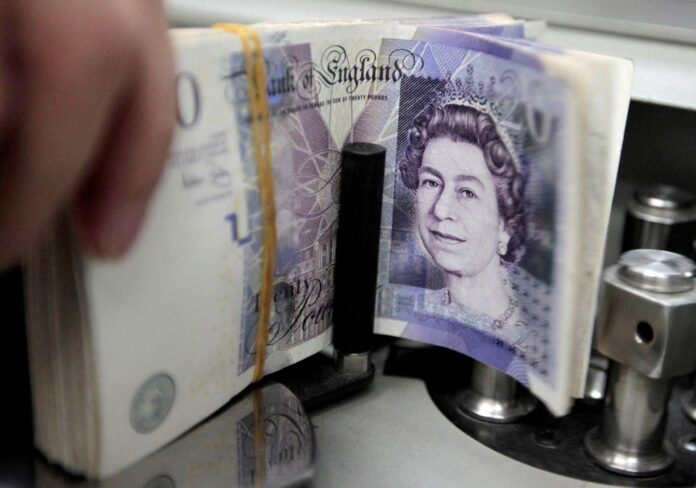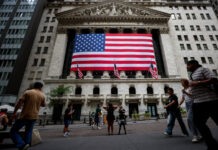
The Sterling was set to snap a six-session losing streak on Thursday as the dollar’s relentless rally paused, but was still on track for a near 4% drop this month as markets trimmed peak rate expectations for the Bank of England.
The pound was last up 0.5% against the greenback at $1.2201, having fallen more than 2% in the previous six trading days, its biggest fall in that timeframe since July.
Sterling also edged up 0.2% to 86.36 pence per euro , having hit its weakest level in four months earlier this week.
The Bank of England last week left interest rates unchanged, refraining from hiking the Bank Rate for the first time since December 2021, amid signs that the economy is slowing and inflation is beginning to fall towards its 2% target.
“The unchanged decision and the lack of hawkish guidance shows they are more firmly closing the door to further rate hikes,” said Kirstine Kundby-Nielsen, analyst at Danske Bank.
“The tail risk that they were going to hike more had been supporting the pound but removing that tail has been detrimental to sterling,” Kundby-Nielsen added.
Money markets are still pricing in one more rate hike from the BoE, which would take the Bank Rate to 5.5%. However, that remains well below previous market expectations for a peak above 6%.
The pound hit a six-month trough of $1.2111 on Wednesday following a 3.8% drop so far this month. It was on track for its biggest monthly fall against the dollar in a year, or since former British Prime Minister Liz Truss’s economic agenda sent UK assets reeling.
“The tail risk that they were going to hike more had been supporting the pound but removing that tail has been detrimental to sterling,” Kundby-Nielsen added.
Money markets are still pricing in one more rate hike from the BoE, which would take the Bank Rate to 5.5%. However, that remains well below previous market expectations for a peak above 6%.
The pound hit a six-month trough of $1.2111 on Wednesday following a 3.8% drop so far this month. It was on track for its biggest monthly fall against the dollar in a year, or since former British Prime Minister Liz Truss’s economic agenda sent UK assets reeling.













